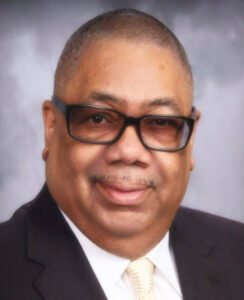
By Rev. Donald L. Perryman, Ph.D.
The Truth Contributor
When nothing is said, a lot is being heard. – Toni Morrison
Toledo’s streets have gone radio silent. You can almost hear crickets chirping as even the barbershops are quiet — and that silence is saying something.
With a mayor’s race on the line, council seats up for grabs and tension brewing beneath the surface, the political energy in Toledo feels more like an open mic night with no audience than a hotly contested campaign season.
So far, though, Mayor Wade Kapszukiewicz is sitting in the front seat, one hand on the wheel, the other waving casually out the window. Rightfully so. Kapszukiewicz, having secured a voter-approved change to the city charter allowing him to pursue a third consecutive term, is “on a high” — riding the wave of economic development, ribbon cuttings and a general sense that he’s brought in some shiny new business.
Wayment now! (in my Bernie Mac voice). Weren’t many of those deals years in the making? Sure! But in politics, whoever cuts the ribbon gets the credit. And right now, Wade is the one holding the scissors.
Yet, he only pulled 54 percent in the primary. Nearly half of the city voted for someone else. So, that’s not a knockout — that’s merely a warning shot.
Enter Roberto Torres —the man who got escorted out of a city council meeting for trying to speak up on behalf of the people and who represents the underdog in this mayoral campaign. Was it the right time but in the wrong place? Maybe. But symbolically, that visual of being escorted from the meeting by security accomplished more for his insurgent campaign than a polished press release could. It portrayed Torres, of Mexican heritage who grew up in a migrant camp, as a man trying to be heard, getting shut down by the system he’s trying to challenge.
But I won’t romanticize the rebellion just yet. Torres still has a very steep climb. Political insiders whisper that his support is hovering around 30 percent — not nothing, but not nearly enough. His name recognition is low. His relationship with labor is “complicated” at best —and, at worst, irreconcilable. And while he’s got experience in economic development, it hasn’t quite translated into a compelling narrative — or a reason for any Wade-fatigued voters to reconsider.
Torres does have northeast Ohio backers who might drop checks into his campaign now that he’s cleared the primary — but if that cash doesn’t come soon, it could be lights out before November even gets close.
Still, don’t count this race out. Remember: nobody’s mad at Wade — except the ones who really are. Those are the voters who are not going to forget that he “bogarted” his way onto the ballot for a third term. If Torres can give them a reason to come back out, this race could get interesting.
And don’t sleep on Harold Harris either. Harris didn’t exactly “show out,” but he did show UP in the primary when he wasn’t expected to, as his supporters backed him when everyone else stayed home. That should rattle both Wade and Torres. Because if voter turnout shifts — it was low in the primary — all bets are off.
In any event, the quiet you hear? It’s not apathy. That’s potential energy.
Silence, according to psychologists, is never just the absence of noise — it’s a signal waiting to be interpreted. And in Toledo’s mayoral race, silence could mean several things: that it’s still early, that voters are watching and waiting. However, it could also be something more telling — that neither candidate has sparked enough enthusiasm to stir the public, or even that voters are just simply content. In addition, silence often serves to mask tension. So, here, it might be hiding disinterest, uncertainty, or a passive acceptance of the status quo.
Perhaps more than anything, though, the silence in this race isn’t about strategy, or fatigue, or quiet consent at all. Maybe it’s something even more profound — the kind of silence Simon and Garfunkel captured in their 1965 global hit song, The Sound of Silence. It was a “hush that held a generation’s anxiety” during the turbulent unrest of the 1960s. The kind that has crept in when voices stop connecting, when public life becomes more performance than purpose, and when truth is left to whisper from the margins.
For sure, the danger isn’t just in what’s said — it’s in what’s ignored. And that silence, too, has a sound. Even for this generation.
Contact Rev. Donald Perryman, PhD, at drdlperryman@enterofhopebaptist.org
